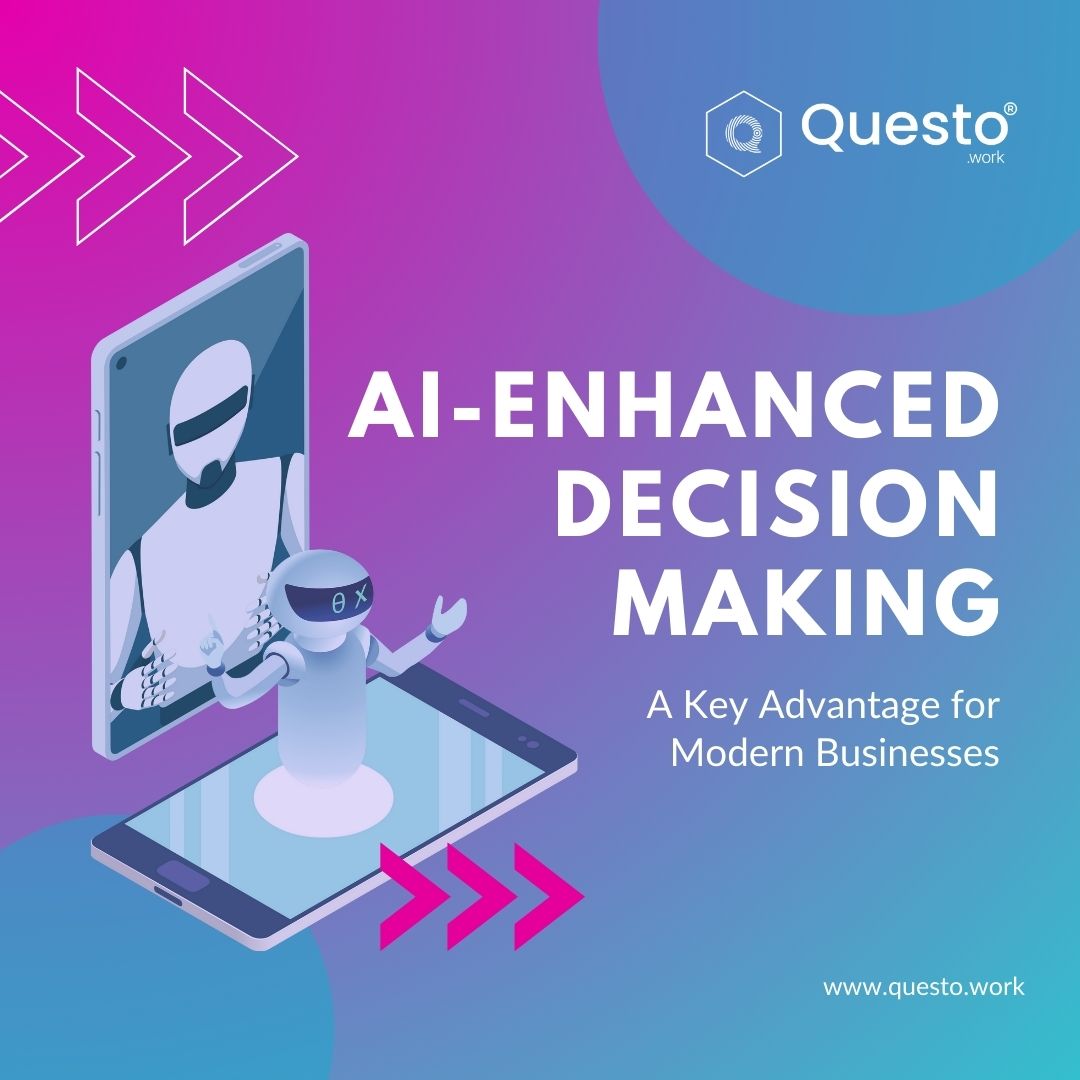In today’s fast-paced, data-driven world, businesses are constantly seeking ways to stay competitive and make more informed, efficient decisions. One of the most powerful tools enabling this shift is artificial intelligence (AI). AI-enhanced decision-making has quickly become a cornerstone of modern business strategies, driving growth, operational efficiency, and innovation across industries. Let’s explore how AI is transforming decision-making processes and why it’s becoming indispensable for modern businesses.
What is AI-Enhanced Decision-Making?
AI-enhanced decision-making refers to the use of AI algorithms, machine learning, and data analytics to assist or automate the decision-making process within organizations. These AI systems analyze massive amounts of data, identify patterns, predict outcomes, and suggest optimal courses of action. From everyday operational decisions to high-level strategic choices, AI is reshaping how companies make decisions with greater accuracy and speed.
Key Benefits of AI in Decision-Making
- Data-Driven Insights AI processes vast volumes of data far faster than any human could. It synthesizes structured and unstructured data from various sources—such as customer interactions, market trends, and internal business metrics—into actionable insights. This allows businesses to move from intuition-based decision-making to one grounded in precise, data-driven insights.
- Faster Decision-Making Traditional decision-making methods often involve multiple layers of analysis, meetings, and back-and-forth approvals, which can delay important actions. AI tools enable rapid analysis and real-time recommendations, accelerating decision-making timelines. Businesses can respond to market changes, customer demands, and operational challenges faster than ever.
- Improved Accuracy and Reduced Bias Human decision-makers are prone to bias and errors, influenced by emotions, personal experiences, or incomplete information. AI-enhanced systems rely purely on data, reducing the influence of biases. Moreover, machine learning models can continually refine their accuracy over time as they learn from new data, leading to more precise predictions and outcomes.
- Risk Management and Scenario Planning AI allows businesses to simulate various scenarios and assess risks with predictive modeling. By analyzing potential outcomes and their associated risks, organizations can make informed decisions about new investments, product launches, or operational changes. This helps mitigate potential losses and positions businesses to better navigate uncertain environments.
- Cost Efficiency The automation of decision-making tasks through AI can save businesses both time and money. With AI handling routine, data-heavy processes, human employees can focus on more strategic activities. Additionally, AI-powered systems often identify cost-saving opportunities by optimizing operations, improving resource allocation, and minimizing waste.
Use Cases of AI in Decision-Making
- Supply Chain Optimization AI tools are revolutionizing supply chain management by analyzing demand patterns, predicting inventory needs, and optimizing logistics. Companies can make better decisions about stock levels, supplier contracts, and delivery schedules, resulting in more efficient supply chains and reduced costs.
- Customer Experience and Personalization AI-powered decision-making tools help businesses tailor products, services, and marketing strategies to individual customer preferences. By analyzing customer data, businesses can predict behavior, personalize recommendations, and deliver highly targeted marketing campaigns that drive engagement and sales.
- Human Resource Management AI is reshaping HR departments by assisting with recruitment, talent management, and employee engagement. Predictive analytics can help businesses make smarter hiring decisions, identify skill gaps, and even predict employee turnover. AI-driven HR tools also streamline processes like performance evaluations and employee feedback.
- Financial Services and Fraud Detection Financial institutions rely heavily on AI to analyze transaction data, identify fraudulent activity, and provide investment recommendations. AI models continuously monitor financial transactions, flagging unusual behavior in real time and helping companies make secure, data-backed financial decisions.
Challenges and Ethical Considerations
Despite its advantages, AI-enhanced decision-making does come with its own set of challenges. These include data privacy concerns, algorithmic transparency, and the need to balance AI recommendations with human judgment. Additionally, businesses must ensure that AI systems are free from biases, as any skewed data inputs can lead to unfair outcomes or decisions.
The Future of AI-Driven Decisions
As AI continues to evolve, its role in business decision-making will only expand. Future developments may include more advanced AI that can understand complex emotional, ethical, and societal factors—integrating human values into its recommendations. Moreover, with the rise of explainable AI, businesses will gain greater transparency into how decisions are made, leading to better trust and collaboration between human and machine decision-makers.
AI-enhanced decision-making represents a significant leap forward for businesses aiming to improve accuracy, efficiency, and competitiveness. By leveraging the power of AI, companies can gain insights from their data, automate time-consuming processes, and make smarter, faster decisions. In a rapidly evolving business landscape, embracing AI-driven solutions is not just an option—it’s a necessity for staying ahead of the curve.
Incorporating AI into decision-making processes helps companies not only survive but thrive, positioning them for success in an increasingly complex and dynamic marketplace.
